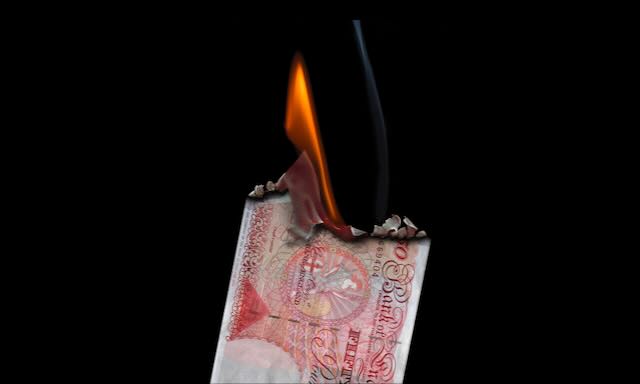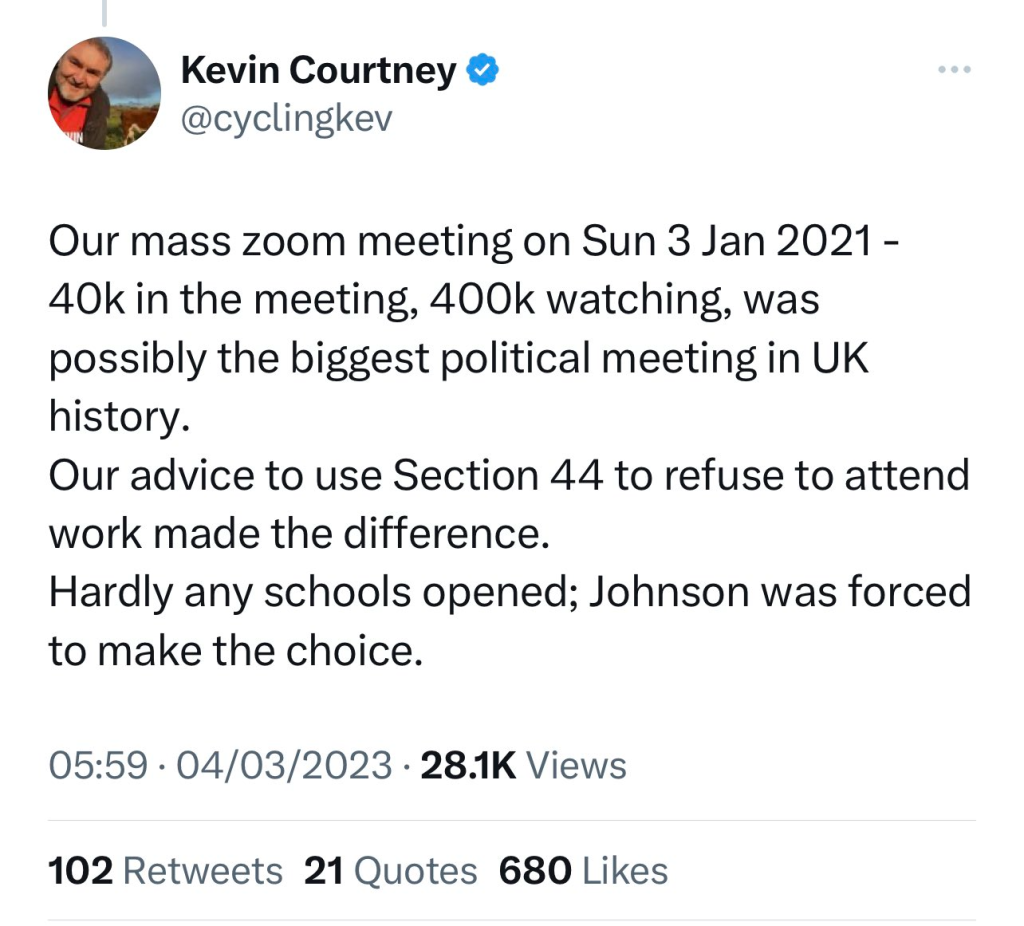
Eye-watering costs outweighed only by the ethical depravity of the response
A recent House of Commons Library Briefing has recently summarised the extent of exceptional public spending related to covid. The total bill related to direct out-of-the-ordinary expenditure of between £310 billion to £410 billion. If one can trust ONS population estimates, this works out at c. £4,600 to £6,100 per person.
These quantified costs, of course, are just a fraction of the impact. Context is everything, specifically a fifteen year on-off period of ‘austerity’ since 2008 during which – it was claimed – there was little additional money available in the public purse to invest in the future. Schools, hospitals, transport infrastructure, energy production, healthcare – all these have an obvious ‘return on investment’ for the population as a whole – and individual citizens. The opportunity cost, i.e. what that expenditure could have more profitably been invested in, hardly bears thinking about.
But even this is not the whole economic story – the asymmetric impact of the response was one of the most egregious aspects of the debacle. The impact on different individuals will have been wildly different, with the negative impacts most cruelly weighted towards the weakest, the most vulnerable, the infirm, the poorest. Those who ‘enjoyed’ lockdown – perhaps having retreated to palatial mansions in the countryside while on furlough, or just working on full pay – surely had a duty to stand up for their fellow citizens rather than cheer on the wildly disproportionate criminalisation of dissent? And the absurdities only compound over time – the above cost figures do not include the lingering impact of ongoing disruption to schooling which – again – impact those who are less well off. Striking teachers who are members of the NEU might wish to reflect on whom they are following to the picket lines and strike braziers, especially those who worked so hard – in public and behind the scenes – to shut the economy down in March 2020 and January 2021:

And it is particularly galling to hear Mary Wakefield, the wife of Dominic Cummins, one of the key lockdown architects (in the UK at least), bemoan the broken-ness of the NHS in last week’s Spectator.
Of course, it gets worse – while it is possible (though extremely difficult) to countenance the ‘rich tapestry of life’ argument for all of the above misadventure (to paraphrase: what doesn’t kill us makes us stronger), such an approach founders when one considers the irreversible horrors that were perpetrated – or allowed to happen – during the darkest days of the covid response. Many didn’t survive the cull, or were permanently harmed by unnecessary pharmaceutical interventions. Those who might otherwise have passed away peacefully with family by their side were instead subjected to inhumane conditions in their final hours. In the UK, hundreds of people died of thirst. Was this all for the ‘greater good’? Plenty of those with their snouts in the trough certainly managed to enrich themselves: the House of Commons Library report points out that the “amount of fraud in government spending reported in the accounts audited by the NAO increased from £5.5 billion in the two years before the pandemic to £21 billion in the next two years. Of this, £7.3 billion was related to temporary Covid-19 schemes”. Shockingly enough, this is merely a sliver of the amount (£250 billion) that was deployed via the Contingencies Fund Acts of 2020 and 2021 with significantly lower levels of scrutiny. Somewhat unsurprisingly, more than a few politicians have been found to have had their snouts in the trough. Who else was on the receiving end of official carrots in order to parrot the party line or cast a blind Nelsonian eye?
HART has – and its members have – consistently objected to the profligacy of the mainstream response to the increase in respiratory disease back in 2020. Given the information that was readily available to everyone – including every politician and public health official – by the middle of March 2020, it is very difficult to understand why draconian & totalitarian restrictions were put in place in the first place, or – despite being (perhaps temporarily?) implemented out of fear and uncertainty – why they weren’t rapidly unwound by early April 2020 at the very latest.
It is a stain on the reputation of every Member of Parliament in March 2020 that the checks & balances on executive overreach did not kick in. Because whichever way one attempts to quantify it, the cost of the shameful covid response will forever remain incalculable.
A few weeks ago, we wrote five theses that we will repeat until our dying days:
1. Forced social isolation of citizens is always morally and ethically wrong;
2. Forced medical procedures are always morally and ethically wrong;
3. Psychological manipulation of populations without their consent is morally and ethically wrong;
4. Government policies that trample on basic constitutional rights (e.g. the right to work, freedom of movement, free speech) are morally and ethically wrong;
5. Government policies designed to increase fear are morally and ethically wrong.
Do not let anyone convince you that these basic principles are debatable. They are not. If we allow a ‘new normal’ to take hold, future generations will not know what it means to really be free. Not only that, in such a ‘new normal’, these future generations will be immeasurably poorer, both in terms of economics and – more importantly – in humanity.
